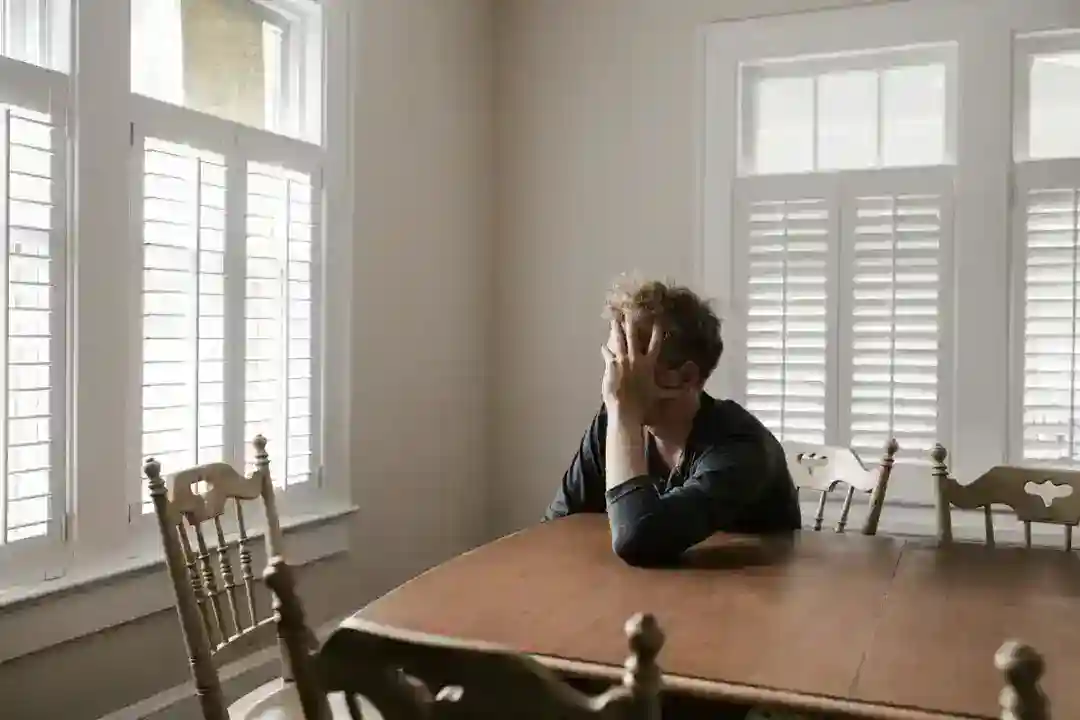Understanding Social Anxiety Disorder: A Common Anxiety Type

Is Social Anxiety Holding You Back?
Do you ever feel like everyone is watching you?. Are everyday social situations more like a terrifying obstacle course than a casual stroll in the park?. Maybe you find yourself avoiding new people or situations that make you anxious. If these feelings have been hanging around for at least six months and are making it hard to tackle everyday tasks like talking to colleagues or classmates you might be dealing with social anxiety disorder. Social anxiety disorder isnt just about feeling shy. Its a powerful persistent fear of being scrutinized and evaluated by others. But this fear can really take a toll on your work school and even your ability to make and keep friends. But heres the good news social anxiety disorder is treatable. You dont have to let this fear control your life.

Is Everyday Life a Social Minefield for You?
Social anxiety disorder is a common anxiety disorder that makes people intensely afraid of social situations. Imagine feeling like everyone is watching and judging you even for simple things like ordering coffee or using the restroom. This is the kind of fear people with social anxiety disorder experience. They worry about being humiliated, judged, or rejected. This intense fear can make everyday activities difficult. Some people avoid social situations altogether while others push through with immense anxiety. This fear often starts in the late childhood and can last for years if left untreated. Thankfully there are effective treatments for social anxiety disorder so you dont have to live with this debilitating fear.

Does Social Anxiety Make You Freeze Up in Crowds?
A social anxiety disorder can make everyday social situations feel like navigating through a minefield. Imagine youre at a party and your heart is racing like wings of a hummingbird. Your palms sweat your voice cracks and you just know everyone is judging your every move. Thats what many people with sad are experiencing. They might blush, tremble, or even feel physically ill when surrounded by others. Making eye contact can feel impossible, and striking up a conversation?. Dont worry about it. Its not that they dont want to connect its that the fear of judgment is so intense that it takes over. This can lead to avoiding situations entirely which can make it even harder to manage anxiety in the long run.

Can Family History Play a Role in Social Anxiety?
Social anxiety disorder often runs in families. This suggests a genetic link but scientists arent sure exactly how its passed down. What they do know is that several areas of the brain play a role in fear and anxiety. Genes influence how these brain regions function. Researchers are studying these brain-body interactions to develop more precise treatments for social anxiety disorder. Theyre also exploring the impact of stress and environmental factors on the development of the disorder. Understanding these influences could lead to better preventative measures and support strategies.

Feeling Like Youre on Stage? You Might Have Social Anxiety
Feeling like youre on stage all the time, even when youre just grabbing coffee? You might be dealing with social anxiety disorder. The first step is talking to your doctor. Theyll want to hear your story and maybe even do a quick checkup to rule out any physical issues. If they suspect social anxiety disorder theyll likely refer you to a mental health professional like a psychologist or therapist. Think of them as your social anxiety whisperers. Theyll help you understand whats going on and create a treatment plan just for you. Treatment often involves a mix of psychotherapy and sometimes medication. Psychotherapy can be super helpful for learning coping skills and changing negative thought patterns. Medication can also play a role in managing the symptoms. The good news is social anxiety disorder can be treated. The right help can help you to navigate social situations with more ease and confidence.

Can Therapy Help You Conquer Social Anxiety?
Cognitive behavioral therapy cbt is like having a personal guide to help you navigate the tricky world of social anxiety disorder. Its a research-backed approach that teaches you new ways to think act and react to situations that usually make you anxious. Think of it as rewiring your brains alarm system for social situations. A cbt session can also help you build your social skills giving you the tools to feel more confident and comfortable in social settings. Exposure therapy is a powerful tool within the cbt toolbox. It involves gradually facing your fears in a safe and controlled environment. Imagine stepping outside your comfort zone one small step at a time until you realize that your fears arent as scary as they seemed. Its like training for a marathon, but for your anxiety. Another option is the acceptance and commitment therapy act. Act focuses on accepting your thoughts and feelings instead of defending them. Its like learning to befriend your anxiety instead of letting it control you. Act uses mindfulness and goal setting to help you move forward in a way that feels authentic and meaningful.

Can Medication Help Tame My Social Anxiety?
Social anxiety disorder can feel overwhelming but there are effective treatments available. One common approach is medication which can help to manage the symptoms. Your doctor might prescribe antidepressants like ssris or snris which are often used for depression but can also ease social anxiety. These medications may take a few weeks to kick in and they can sometimes cause side effects like headaches or trouble sleeping. But dont worry these side effects are usually mild especially if your dosage is started low and gradually increased. The kind that spikes during presentations or social events can be a lifesaver for those experiencing performance anxiety beta-blockers can help. They work by calming the bodys physical symptoms like rapid heartbeat, sweating, and trembling. Then there are benzodiazepines which are powerful anti-anxiety medications that work fast. They can be incredibly effective for reducing anxiety quickly but they can also lead to tolerance and dependence so doctors usually prescribe them for short periods only. Remember finding the right treatment plan is a journey. It often involves trying different medications and working closely with your healthcare provider to determine the best dose and duration. Combining medication with therapy like cognitive behavioral therapy cbt often yields the best results.

Tired of Feeling Like the Worlds a Stage?
Living with social anxiety disorder can feel isolating. Its like the worlds a spotlight, always focused on you. Thats where support groups come in. Imagine being in a room full of people who get it who understand the crippling fear of social situations. In these groups, you can share your experiences, your worries, and your triumphs without judgment. Youll hear from others whove walked in your shoes and learned coping strategies. Some of these strategies may surprise you showing you that youre not alone in your struggles. Think of it as a safe place to practice your social skills and build your confidence. Remember support groups are a valuable resource but theyre not a substitute for professional help. Psychotherapy and medication can be incredibly effective in treating social anxiety disorder. If youre feeling overwhelmed dont hesitate to reach out to a healthcare provider.

Is Social Anxiety Controlling Your Life?
Social anxiety disorder can feel like a monster in the room, whispering doubts and fears. It is like climbing mount everest in everyday life. But the good news is, there are ways to fight back. The first step is knowledge. Tell me the warning signs of social anxiety disorder. Think of it like arming yourself with a map and compass to navigate this tricky terrain. Talking about it can be a huge help. If youre struggling confide in someone you trust. Share your feelings and let them know you need support. If you suspect a friend or family member is battling social anxiety reach out with compassion and understanding. Tell them youre there for them. Remember that seeking professional help is a sign of strength not weakness. If social anxiety starts interfering with your daily life work school relationships its time to call in the experts. A therapist can provide guidance and tools to help you manage your anxiety and reclaim your life.

Could Clinical Trials Help You Overcome Social Anxiety?
The national institute of mental health nimh is deeply invested in understanding and treating mental health conditions including social anxiety disorder. They fund a variety of research projects with clinical trials being a key part of the puzzle. These trials are essentially scientific experiments that test new ways to prevent detect or treat social anxiety disorders. While participating in a trial can be personally beneficial remember that the main goal is to gather valuable knowledge that will ultimately help more people in the future. Want to learn more about these trials?. Its your healthcare provider who is a great resource. They can discuss the potential benefits and risks and help you determine if a clinical trial is the right fit for you. You can also find more information on nimhs website dedicated to clinical trials.

Worried Social Situations Make You Nervous? Heres How to Find Help
Do you feel overwhelmed by social anxiety?. Youre not alone. Millions of people struggle with social situations and finding the right help can make a world of difference. The substance abuse and mental health services administration samhsa has a fantastic online tool called the behavioral health treatment services locator. Think of it as a map to mental health resources in your state. You can search for treatment facilities and programs right on their website. Need some extra guidance?. The national institute of mental health (nimh) also has a great webpage called help for mental illnesses that offers tons of helpful information and support. Remember talking to a healthcare provider is a crucial step in managing social anxiety. They can offer personalized advice and treatment options. The agency for healthcare research and quality has some fantastic tips on how to prepare for your appointment and make the most of your visit.